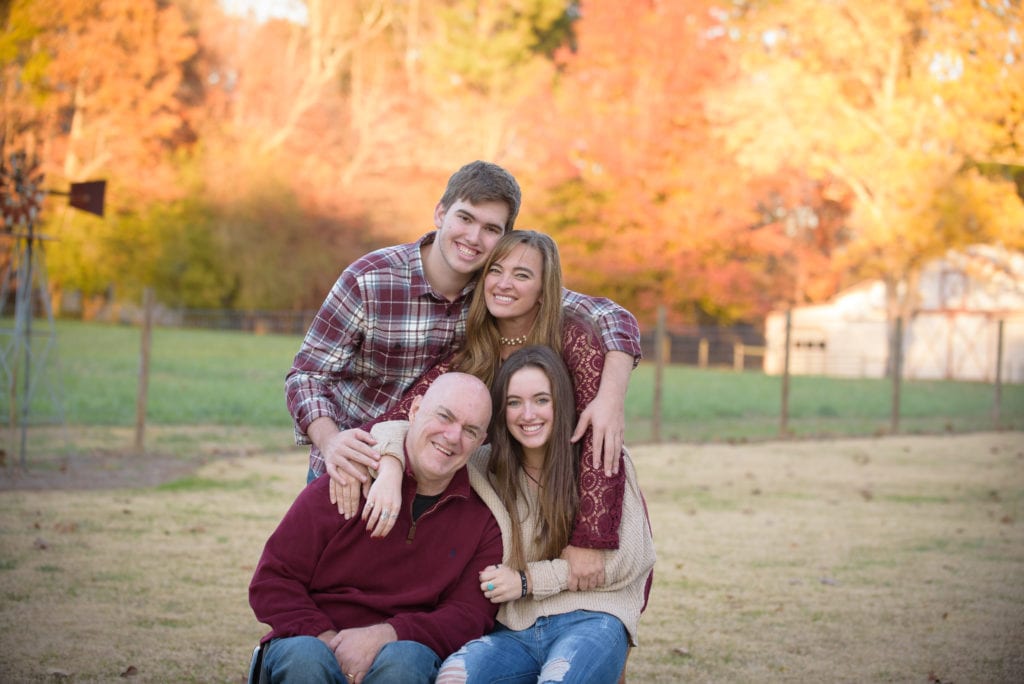Bert Burns’ experience in the disability industry and dedication to the community goes back almost 40 years. In addition to his career in the medical supply business, Bert has always been passionate about wheelchair sports and helping others. In this blog, we share his story of how he created a full, happy life and family after spinal cord injury – and how he believes others can, too.

Bert Burns Faces SCI at 20
While attending University of Central Florida in the early 80’s, Bert Burns was your typical college student. He was a part of a fraternity and worked waiting tables at a local restaurant in his off time. However, no one can anticipate a life-changing event that’s waiting around the corner. One late night after his shift, Bert was on his was home and was hit by a drunk driver who had run a red light going over double the speed limit.
Both Bert and the individuals riding in the other vehicle were thrown from their cars. The first responder on scene came to assist Bert initially, but wasn’t able to find a pulse, so he moved on to the other three people. By some miracle, there were other paramedics in the area that heard the call and came to offer help. When they went to deal with what they thought was a dead body, they discovered that Bert was still alive and revived him. He had sustained a C-6/7 spinal cord injury.
During rehab in Florida, Bert says his recreational therapist made the most profound impact on him and his future. their influence would set him on a new path that would not only help him find strength and purpose, but allow him to pay that gift forward to others.
A Life-Long Athlete, Bert Rediscovers Sports in Rehab
While in rehab, Bert had the opportunity to meet wheelchair athletes that showed him what could be possible. He also had the chance to try out a racing wheelchair, but couldn’t quite imagine actually racing, since rolling down the hallway at a snail’s pace was enough of a challenge. On one outing, he was able to try out tennis, too.
“I couldn’t even hold the tennis racket,” Bert recalls. “So, they duct-taped the racket to my hand – and that worked. If they threw the ball within a couple feet of me, I was even able to hit it!”
After 4 months, Bert was discharged from rehab. At that point, he was far from independent, so he decided to move in with his parents. He remembers, “I began my process to start living independently. One evening, I decided to try and get some exercise and see how far I could roll. I tried to roll just a few houses down the block to the stop sign. I made it, but was exhausted and needed my brother to help push me back. The next night, I made it to the stop sign and half way back on my own. On the third night, I made it there and all the way back without help.”
Those three days changed Bert’s perspective on what he could be capable of, if he put the work in. He shares, “I realized that experience represented my ‘baby steps.’ That happened in June and right then, I made the decision to participate in a 5K in September. It wasn’t going to be easy, so I trained every single day with the help of my family.”

Bert’s Love for Wheelchair Racing is Born
Bert remembers his first race vividly. He says, “I arrived at the starting line in a huge, heavy E&J wheelchair. I watched as other athletes showed up in racing chairs, which were really new at the time, and I knew nothing about them. There were about 500 contestants and I proceeded to finish last. Very last… behind the kids and the grandmas. But, I had all the support and I didn’t give up.”
“My fraternity brothers walked with me the whole way and when I crossed the finish line,” Bert recalls, “My time was one hour and five minutes and I knew in that moment, that that would be my slowest time ever. I stuck with it and I finished – and I would only get better from there.”
With a friend’s help, Bert soon purchased a racing wheelchair and began practicing more. He couldn’t possibly know at that time, though, what an important part of his life the sport would be.
Paying it Forward
Bert was ready to return to school, but because of his experience at rehab, he decided to switch his focus from business to recreational therapy. He graduated in the fall of ’88 from the University of Florida and accepted his first job at Shepherd Center in Atlanta as a Sports and Fitness Specialist, which was something of a dream job.
Being surrounded by other wheelchair athletes at Shepherd really motivated Bert to get more serious about racing. Shepherd had a team, so he began training with other racers 5-6 nights per week. His first major race was in 1990 with an international team with which he was able to compete in the Netherlands for the World Championships. But his most cherished moment in racing came a couple years later.
In 1992, Bert achieved his goal of making the Paralympic Team and was invited to attend the games in Barcelona, Spain. He participated in three events – the 5K meter track, the marathon and the 4×400 relay. His team won the gold medal and set a world record.
“I remember being on the stand, them putting the medal around my neck, the American Flag flying with our anthem and the crowd cheering. I couldn’t believe it. It was only 10 years after my injury. All the memories flooded through my mind. I remembered trying to get to that stop sign. I remembered all the people that helped me get there. I will never forget how it felt.”
Bert Finds a New Way to Help People Who Roll
Eventually, Bert transitioned from RT to the medical supply business. After some experience in the industry, he started his own company, called UroMed. The company saw 18 successful years before Bert sold it and took some time off to be with his family.
After a few years, Bert decided to get back into the medical supply business. He reflects, “I missed work and realized I could take all the knowledge I’d gained from my past experiences and create an even better company and keep helping people. So, I started UroStat Healthcare.”
“A lot of times, it’s hard for people to fight through their private insurance to get things paid for – and we can definitely do that for them. We’re here to help out folks that are in the same situation that I was in once upon a time.”

What Motivates Bert
Above all, Bert is a doting and dedicated husband and father. Bert met his wife, Joy, when she was working as a recreational therapist in a rehab center he came to call on. After a couple phone conversations, Bert remembers the moment when he first saw her in person, “I called her name, Joy, and she turned around with the biggest, most beautiful smile I’d ever seen. I thought to myself in that moment, ‘I’m going to marry this girl.’”
Just a few months later, Bert organized a fairy-tale proposal for Joy at Cinderella’s castle, where Cinderella herself participated in the presentation of the engagement ring. They were married the next year and welcomed their beautiful twins into the world a few years later. The twins are 18 today and headed to Auburn in the fall for college.
If Bert could give advice to those new to dealing with a spinal cord injury, it’s as simple as this – life goes on after your injury. He says, “Once it happens, it doesn’t mean life’s over – it’s just different. In truth, your life will be what you make of it. If you decide life sucks, it will. But, if you go home and say, ‘hey, these are the cards I was dealt’ and move forward, life will go on. I mean, obviously, I didn’t wake up one day and decide I wanted to be a quadriplegic. Would I like to walk? Sure. But, truth is, I can roll faster than most people walking.”
“Everyone has a wheelchair. Sometimes it’s an actual wheelchair. Sometimes it’s divorce, addiction or losing someone we love. Sometimes it’s anger or low self-esteem. But, every one of us has something to carry.”
To learn more about UroStat, visit our About Page!
We provide FREE samples of urinary catheters.
If you aren’t sure which product to go with, request
free samples from us to help you along the way.




